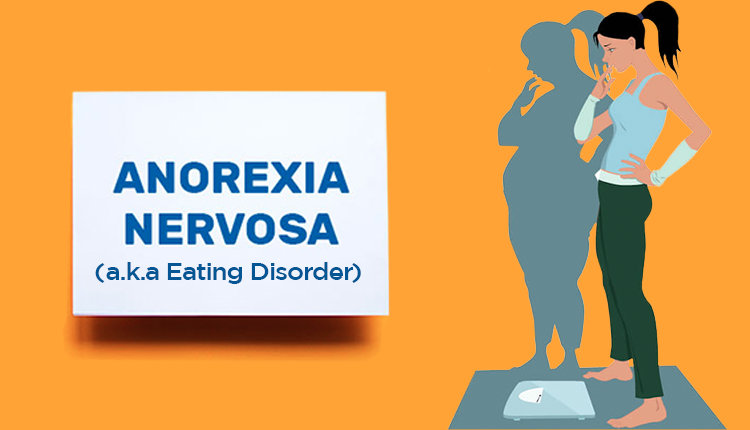
Anorexia Nervosa (a.k.a Eating Disorder)
Anorexia Nervosa often referred to as anorexia, is a life-threatening eating disorder characterized by low weight, food restriction, fear of gaining weight, and an overpowering desire to be thin. Anorexia is diagnosed when body weight is 15% less than the expected weight.

People with Anorexia develop an excessive fear of gaining weight and tend to follow an extremely low-calorie diet.
Symptoms
- Weak and skinny appearance: Due to a calorie deficit diet a person gets weak and thin. Other visible signs are dry skin and excessive hair loss and thinning of hair.
- Insomnia: This may happen due to increased stress, hunger, etc.
- Fatigue: Lack of energy due to consuming fewer calories.
- Absence of menstruation: Due to low body weight, nutrient deficiencies, hormonal imbalance, etc
- Constipation: Due to eating very little food, bowel movement gets affected.
Causes
Anorexia has no single cause. Genetics and hormones might have a role in the development of the disorder. Pressure from society, social media, etc. also promote thinness as the ideal body type may lead to the development of eating disorders like anorexia.
Cure/Treatment
Cognitive behavior therapy and interpersonal psychotherapy might work for the short term but isn’t sustainable or long term. For long-term effect therapies that incorporate motivational enhancement techniques, family therapy, etc are recommended to improve the state of mind of the patient.
Recovery Time
It takes on an average 5-6 years from diagnosis to recovery but it is often seen that up to 30% of the patients do not recover.


